Acne is a common skin condition that affects millions of people worldwide. While often associated with adolescence, it can occur at any age and varies in severity. This article explores the root causes of acne, effective treatments, and practical prevention methods to help you maintain clear, healthy skin.
1. What is Acne?
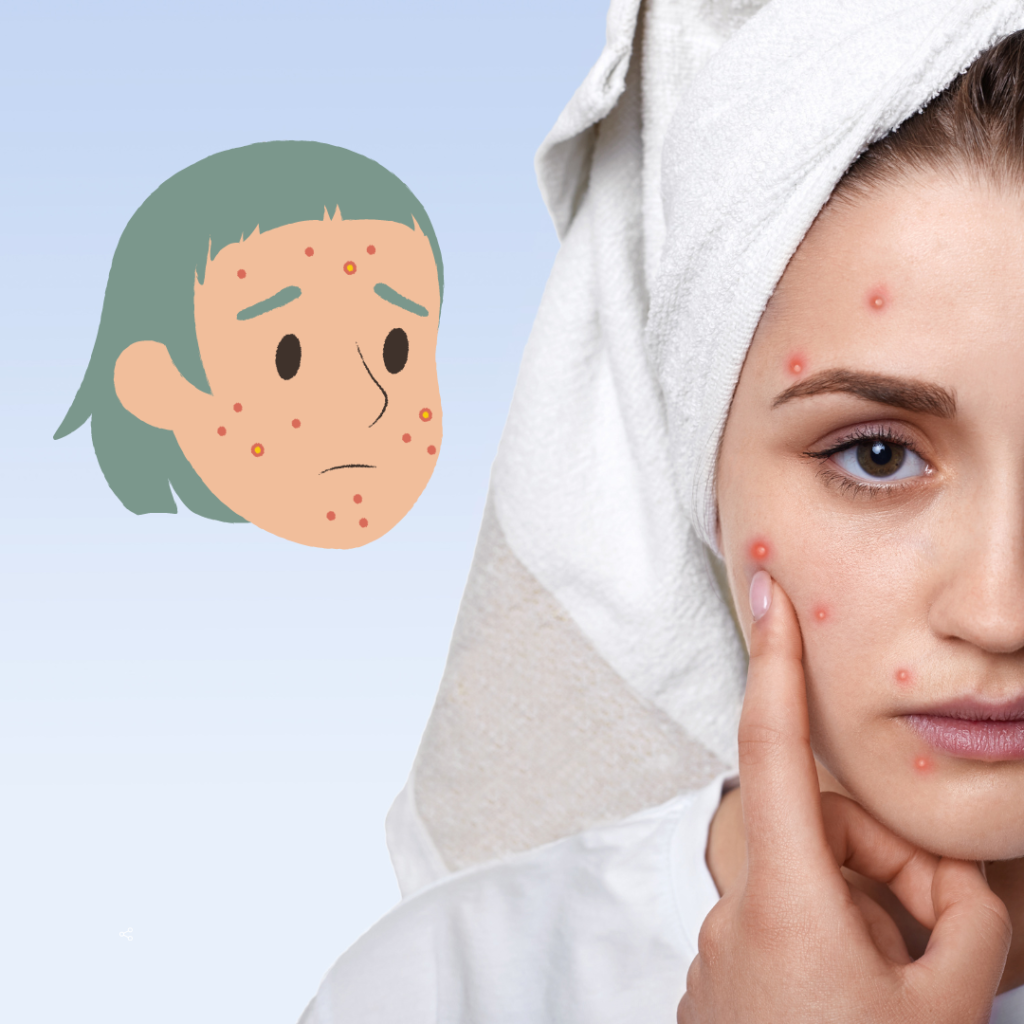
Acne is a skin condition characterized by the presence of pimples, blackheads, whiteheads, and cysts. These blemishes occur when the skin’s pores become clogged with oil, dead skin cells, and bacteria. Acne most commonly appears on the face, back, shoulders, and chest.
The severity of acne can range from mild breakouts to severe cystic acne, which can cause significant inflammation and discomfort. Understanding the different types of acne and their causes is essential to finding the right treatment for your skin.
2. Types of Acne
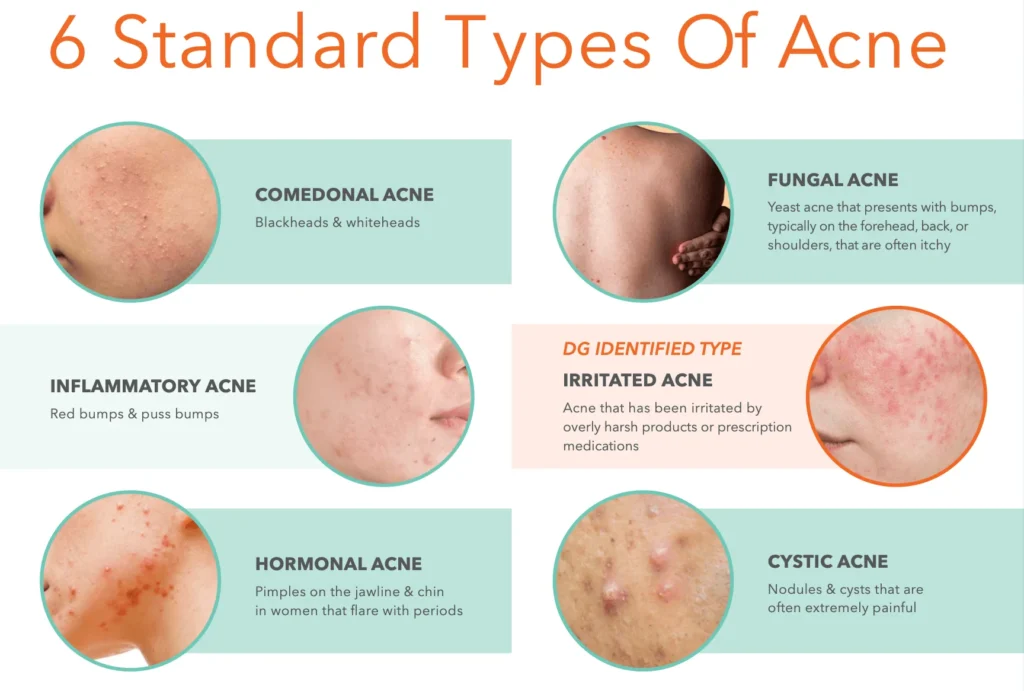
There are several different types of acne, each with its characteristics and severity:
- Whiteheads: These are small, white bumps that form when pores are clogged and closed.
- Blackheads: Blackheads are similar to whiteheads but occur when the pore remains open, causing the trapped oil and debris to oxidize, resulting in a darkened appearance.
- Papules: Small, red, inflamed bumps that do not contain pus.
- Pustules: Similar to papules, but filled with pus, giving them a white or yellowish center.
- Nodules: Hard, painful lumps beneath the skin that are larger than papules or pustules.
- Cysts: Deep, painful, pus-filled lumps that can cause scarring if not treated properly.
3. Common Causes of Acne
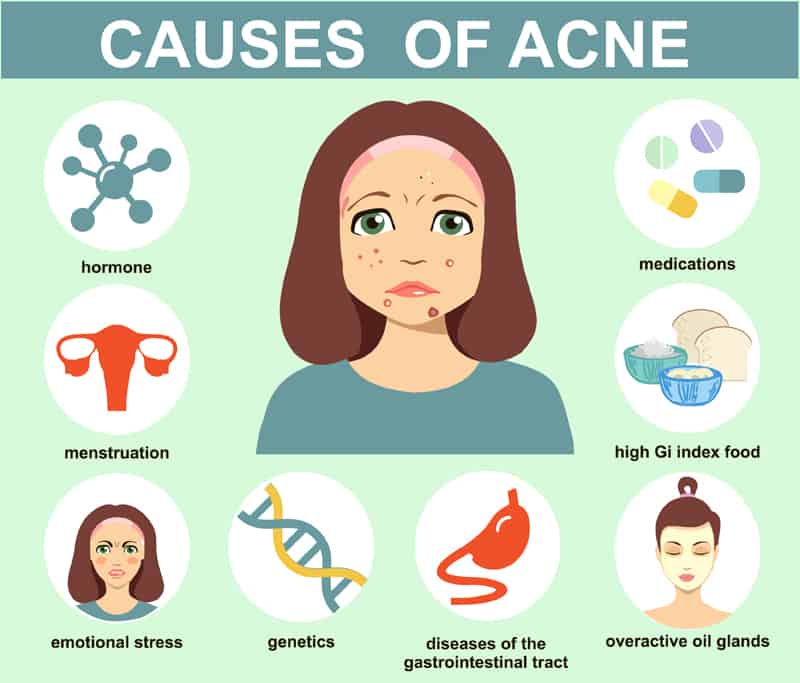
Understanding the factors that contribute to acne can help in prevention and treatment. Some of the primary causes include:
- Excess Oil Production: Overactive sebaceous glands produce too much oil, clogging pores and contributing to acne formation.
- Hormonal Changes: Hormonal fluctuations during puberty, menstruation, pregnancy, and even stress can lead to increased oil production and acne breakouts.
- Clogged Pores: Dead skin cells, dirt, and oil can build up and block pores, leading to acne.
- Bacteria: The bacteria Propionibacterium acnes can multiply in clogged pores, triggering inflammation and causing more severe forms of acne.
- Diet: Certain foods, particularly those high in sugar and dairy, may exacerbate acne for some individuals.
- Stress: Emotional and physical stress can lead to hormone changes that trigger acne.
- Medications: Some medications, including corticosteroids and hormonal drugs, can cause or worsen acne.
4. How Hormones Affect Acne
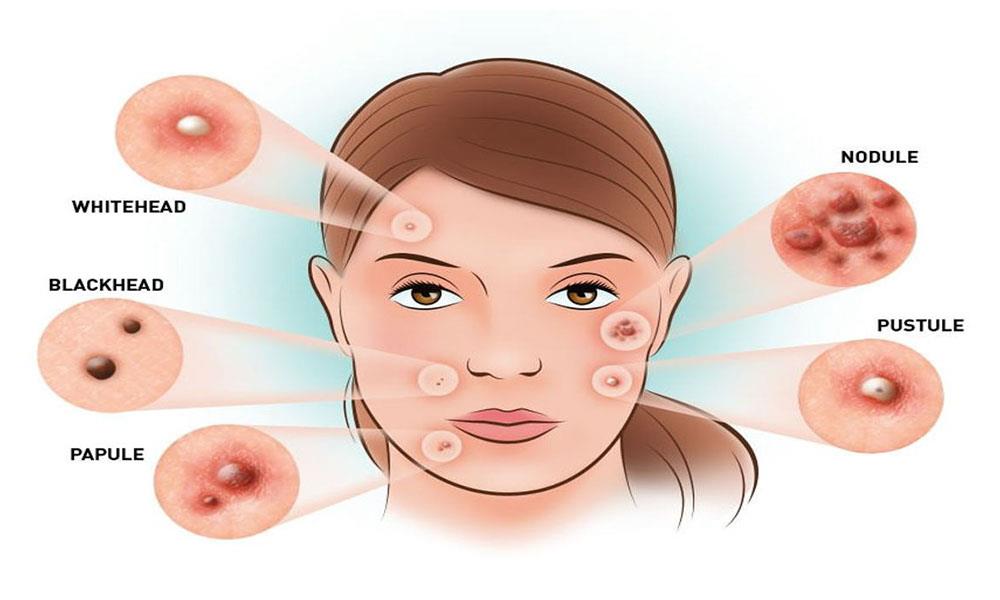
Hormonal acne is a common issue for many teenagers and adults. The main hormones responsible for acne are androgens, which increase oil production. Androgens surge during puberty, which is why many teenagers experience breakouts. In adults, hormonal acne can be triggered by menstrual cycles, pregnancy, and conditions like polycystic ovary syndrome (PCOS).
For women, hormonal acne often appears around the jawline and chin. Understanding the hormonal connection to acne can help guide treatment decisions, especially when considering options like birth control pills, which are sometimes used to regulate hormones and reduce acne.
5. Acne Myths and Misconceptions
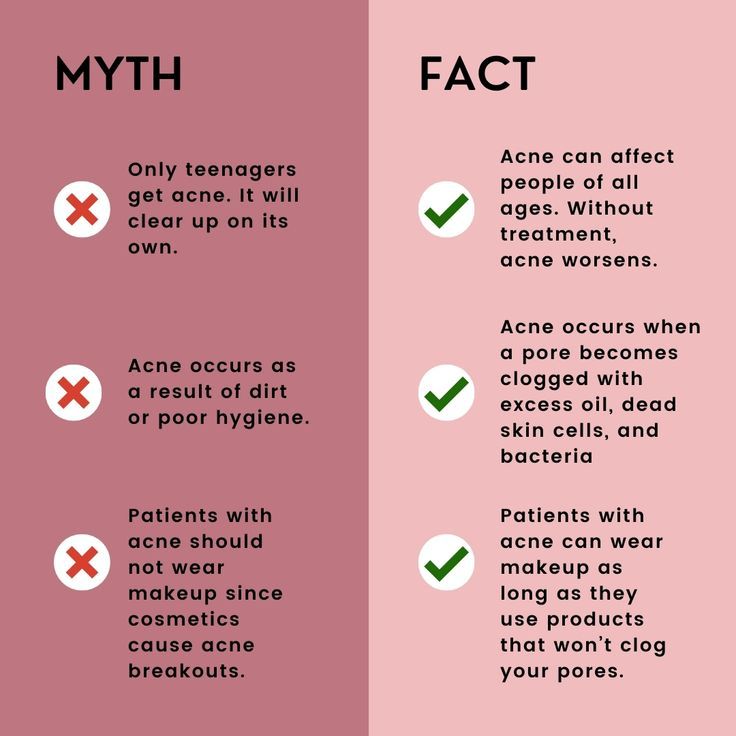
There are many misconceptions surrounding acne, and it’s important to debunk these myths:
- Myth 1: Acne is caused by poor hygiene. Washing your face excessively can irritate the skin and worsen acne. Proper cleansing is important, but over-washing is not the solution.
- Myth 2: Only teenagers get acne. While common during adolescence, acne can affect individuals of all ages, including adults.
- Myth 3: Popping pimples helps them heal faster. Popping pimples can lead to infection, scarring, and further inflammation. It’s best to avoid touching or picking at acne.
- Myth 4: Makeup causes acne. Using non-comedogenic makeup designed for acne-prone skin will not necessarily cause breakouts. Always remove makeup before bed to prevent clogged pores.
6. Acne Treatments: What Works?
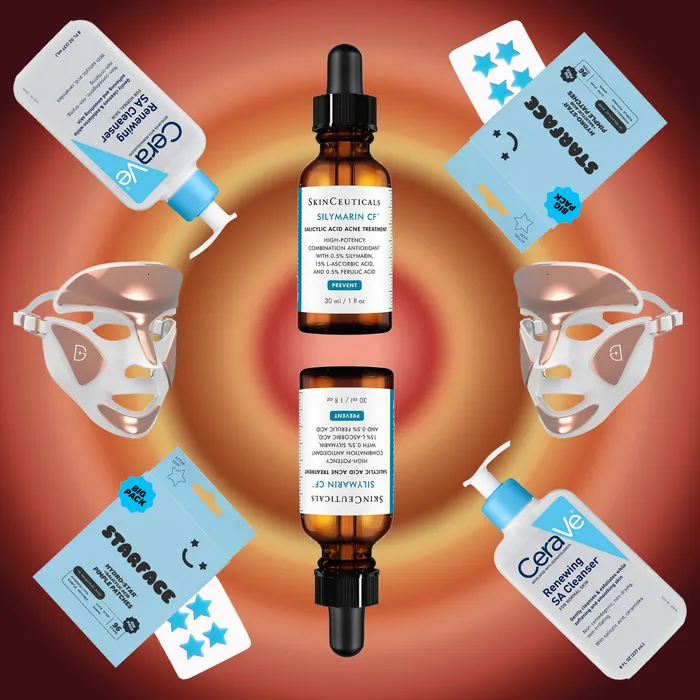
There are numerous treatments available for acne, ranging from over-the-counter products to professional treatments. The right approach depends on the severity and type of acne.
- Topical Treatments:
- Benzoyl Peroxide: Kills acne-causing bacteria and reduces inflammation.
- Salicylic Acid: Helps to exfoliate the skin and unclog pores.
- Retinoids: These Vitamin A derivatives help clear clogged pores and promote skin cell turnover.
- Antibiotics: Topical antibiotics may reduce bacteria and inflammation.
- Oral Medications:
- Antibiotics: Oral antibiotics like doxycycline can treat moderate to severe acne by reducing inflammation and bacteria.
- Birth Control Pills: Hormonal treatments that regulate oil production for women with hormonal acne.
- Isotretinoin (Accutane): A powerful prescription medication for severe acne that hasn’t responded to other treatments.
- Professional Treatments:
- Chemical Peels: Use of acids to remove the top layer of skin, reducing acne scars and breakouts.
- Laser and Light Therapy: Target bacteria and reduce oil production using light treatments.
- Extractions: A dermatologist can safely extract blackheads and whiteheads without causing damage to the skin.
7. Natural Remedies for Acne
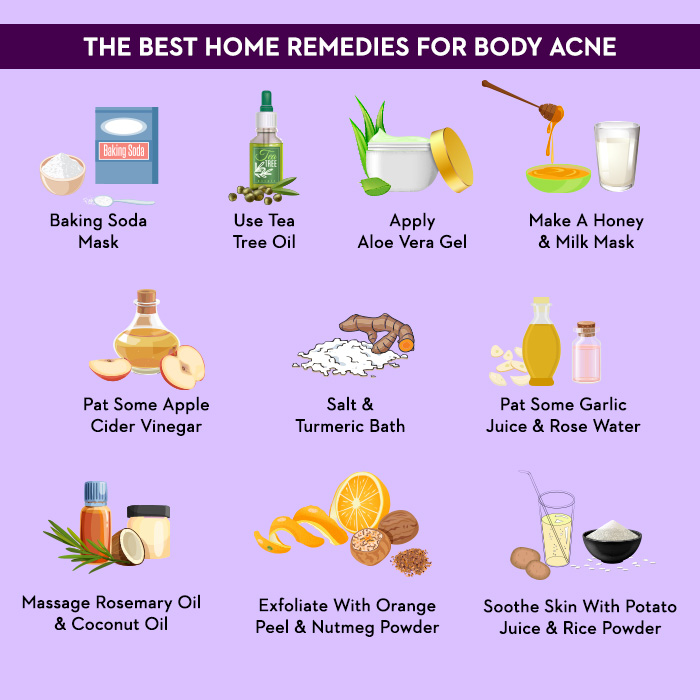
Many individuals prefer natural treatments for their acne, either in combination with medical treatments or on their own. Some popular options include:
- Tea Tree Oil: Known for its antibacterial properties, tea tree oil can be applied as a spot treatment.
- Aloe Vera: Aloe vera is soothing and anti-inflammatory, which can help reduce redness and irritation.
- Green Tea: Applying green tea topically may help reduce oil production and inflammation due to its antioxidant properties.
- Honey: Honey has antibacterial properties and can be used as a soothing face mask.
While natural remedies may provide relief, it’s important to be cautious, as not all treatments work for everyone, and some may cause irritation.
8. How to Prevent Acne
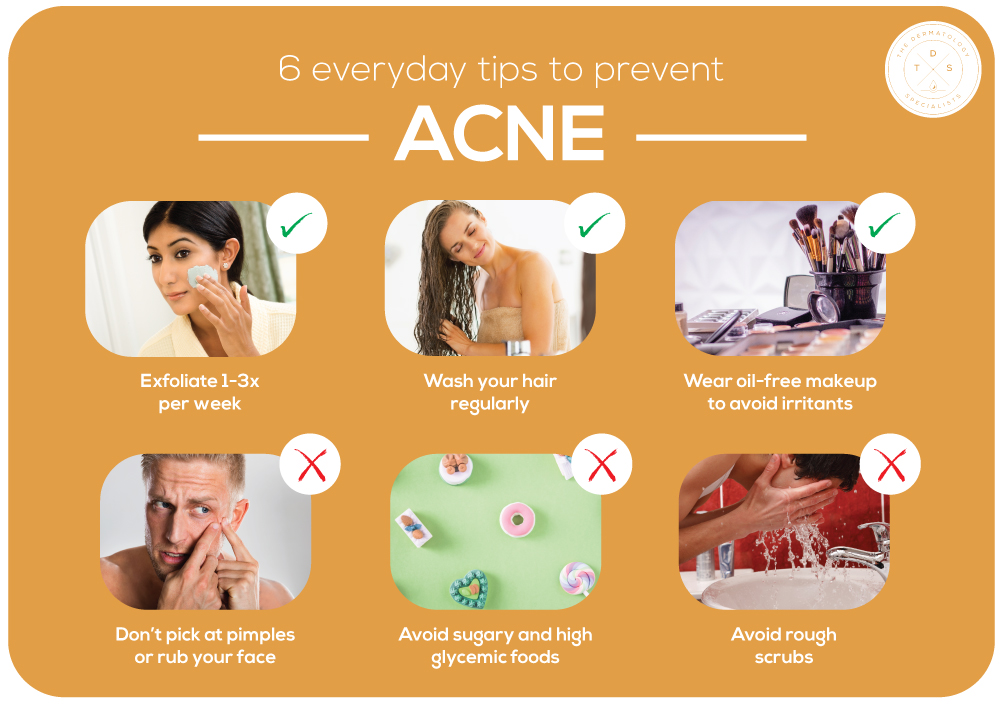
Preventing acne requires consistent skincare and lifestyle habits. Some effective strategies include:
- Proper Cleansing Routine: Cleanse your face twice a day with a gentle cleanser to remove dirt, oil, and makeup.
- Avoid Over-Washing: Washing your face too often can strip the skin of natural oils, causing irritation and breakouts.
- Use Non-Comedogenic Products: Choose skincare and makeup products that won’t clog pores.
- Moisturize Regularly: Even oily skin needs moisture. Opt for oil-free, non-comedogenic moisturizers.
- Watch Your Diet: A diet rich in fruits, vegetables, and whole grains can support overall skin health. Reduce sugar and dairy intake if you notice a correlation with breakouts.
- Avoid Touching Your Face: Touching your face transfers bacteria and oils that can clog pores and cause acne.
- Manage Stress: Practicing stress-relieving activities like yoga or meditation can help regulate hormones that trigger acne.
9. Managing Acne Scars
Acne scars can be a lasting reminder of breakouts. There are several treatment options available to reduce the appearance of scars:
- Chemical Peels: Removes the damaged outer layer of skin to reveal smoother skin underneath.
- Microneedling: Promotes collagen production and skin regeneration, reducing the appearance of scars.
- Laser Treatments: Target scarred areas to improve skin texture and tone.
- Topical Creams: Products containing retinoids or alpha hydroxy acids (AHAs) can help fade scars over time.
10. When to See a Dermatologist
While many cases of acne can be managed with over-the-counter treatments, it’s important to consult a dermatologist for more severe cases. If your acne is painful, persistent, or causing emotional distress, a dermatologist can offer personalized treatments to improve your skin.
Acne is a common yet treatable condition that affects people of all ages. By understanding the causes, debunking myths, and utilizing effective treatments, you can take control of your skin health. Whether through medical treatments or natural remedies, finding the right approach for your skin type is key to achieving clearer, healthier skin.


hi